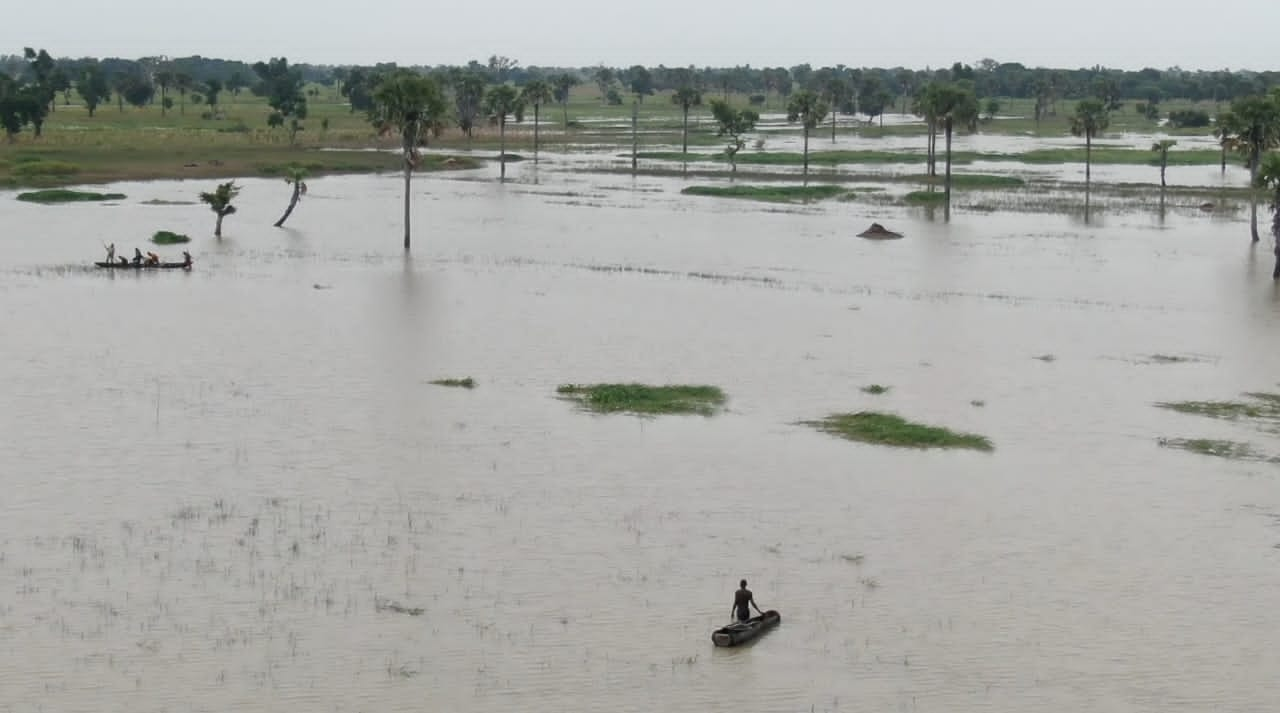Extreme weather worsens food insecurity and falling agricultural productivity as temperature increase is accelerating across Nigeria and other African countries.
Over 60% of the labour force in Nigeria depends on agriculture for their livelihoods but due to climate change, agricultural production in Nigeria and other African nations has decreased by 34% since 1961.
In a recent report, the World Meteorological Organization (UMO), the leading authority on weather, climate, and water within the United Nations System, also issued a warning that the current scenario may uproot many people and exacerbate conflicts across the continent of Africa.
Massive flooding that has already destroyed farms and property in Nigeria over the past ten years has increased after 2012, displacing millions of citizens. Similar circumstances are present in other African nations.
- 8.3m persons in need of humanitarian interventions in Northeast – FG
- Why the world needs more oil, not less
According to scientists, countries like Nigeria will continue to experience growing losses and damages from climate change, and farming communities will also experience displacement and conflict over limited resources.
The African Climate Policy Centre estimated that Africa will likely incur losses and damages of between US$290 billion and US$440 billion as a result of climate change.
Ambassador Josefa Leonel Correia Sacko, the Commissioner for Agriculture, Rural Development, Blue Economy, and Sustainable Environment at the African Union Commission, said if the climate isn’t controlled, the continent’s economies, way of life, and natural environment would likely experience significant strain in the future.
The Secretary-General of WMO, Prof. Petteri Taalas, said: “Africa is responsible for less than 10 per cent of global greenhouse gas emissions. But it is the continent that is the least able to cope with the negative impacts of climate change. Heatwaves, heavy rains, floods, tropical cyclones, and prolonged droughts are having devastating impacts on communities and economies, with increasing numbers of people at risk,”.
In 2022, weather, climate, and water-related disasters directly impacted more than 110 million people on the continent, resulting in more than US$ 8.5 billion in economic losses.
According to the Emergency Event Database, there were 5,000 documented fatalities, of which 48% were related to drought and 43% to flooding. But due to underreporting, the real cost is probably far higher, WMO said in a news release Monday.
The State of the Climate in Africa 2022 report shows climate change and the diminishing natural resource base could fuel conflicts for scarce productive land, water, and pastures, where farmer-herder violence has increased over the past 10 years due to growing land pressure, with geographic concentrations in many sub-Saharan countries.
By 2025, it is anticipated that African nations’ annual food imports will rise by a factor of three, from US$35 billion to US$110 billion. In comparison to other parts of the world, this decline is the greatest.
Africa produces a small percentage of the world’s greenhouse gas emissions, but it suffers disproportionately from climate change. This worsens the threat of conflict due to resource scarcity and damages economies, ecosystems, and food security. It also encourages migration and displacement.

 Join Daily Trust WhatsApp Community For Quick Access To News and Happenings Around You.
Join Daily Trust WhatsApp Community For Quick Access To News and Happenings Around You.


